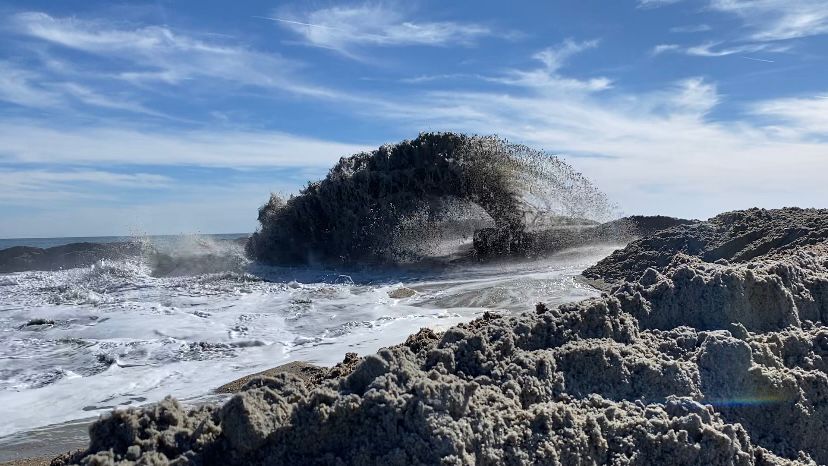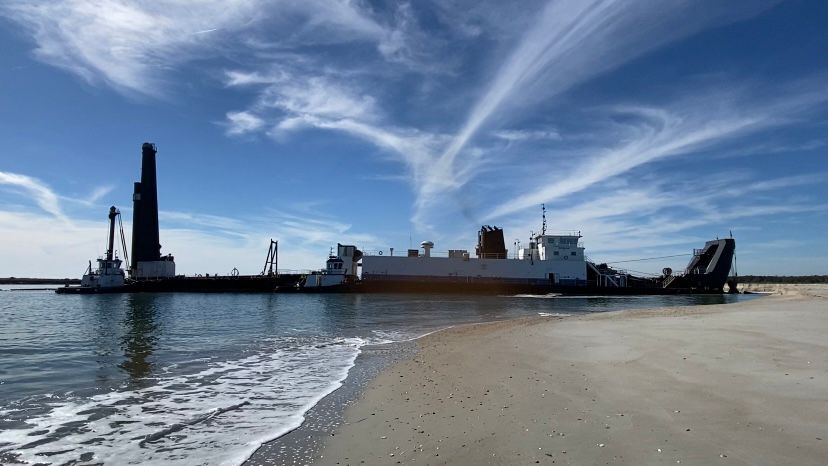WRIGHTSVILLE BEACH, N.C. — If you’re planning a trip to Wrightsville Beach any time soon, you might want to be sure to stick to the north end.
Work for the beach’s Coastal Storm Risk Management project began last week, and much of the southern end of the beach is blocked off so crews can take care of business.
A CSRM project is a renourishment project that adds sand back to the beach. It’s all to help rebuild beaches depleted from storms and erosion.
Dave Connolly, with the U.S. Army Corps of Engineers, says that when the project is complete, Wrightsville Beach will look much healthier.

“We’re gonna put about one million cubic yards of sand on this beach,” Connolly said. “And so what the public will see, basically, the berm will be about 200 foot wider than it was previous to that.”
These projects are done about every four years and are necessary in keeping North Carolina’s beaches healthy and accessible. Much of the sand being used for Wrightsville’s CSRM project is being borrowed from just down the beach at Masonboro Inlet.
“That’s where the slurry is coming out of, it’s a combination of water and sand, our borrow source, approved borrow source that we have is in Masonboro Inlet,” Connolly said. “So you have a big dredge out there in the inlet, and then an underwater pipe that runs through here that pumps out the sand so that the engineers can shape the beach with the dozers to the elevations that are required.”
Connolly says although the work may be a bit of an eyesore now, it’ll all be worth it when the project is complete.

“It protects the infrastructure from coastal storms, it helps prevent the erosion,” Connolly said. “There’s also incidental benefits of, you know, larger berm means better habitat and nesting areas for sea turtles and shore birds, and then of course there’s an economic benefit of tourism, the offshoot is you have a nice healthy beach, it’s a nice place to recreate and hang out.”
Work is expected to be completed by the end of April. To track the project’s progress, you can click here.



